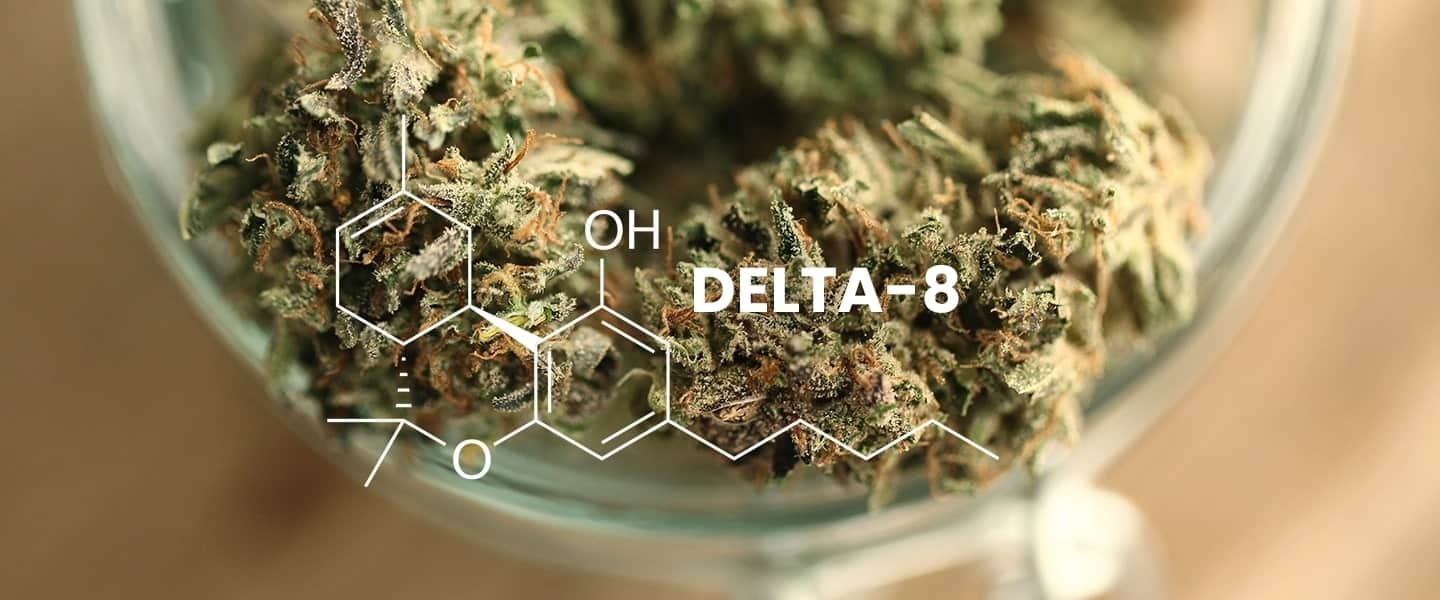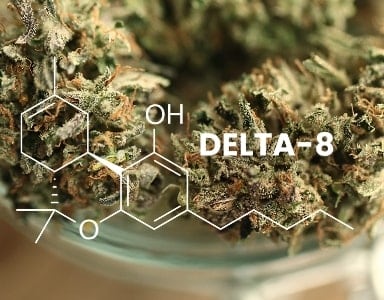What Is Delta 8-THC?
Delta 8-THC is one of the 110+ cannabinoids in the Cannabis sativa L. plant. Like delta 9 THC, which is known for being in marijuana in abundance, delta 8 produces an intoxicating high. D8 produces a similar effect to D9 but is believed to be about half as potent.
A subtle difference in their respective structures results in delta 8 and delta 9 providing highs of varying potencies. Both cannabinoids have a double bond in their structures, which is believed to cause the famed intoxicating high. However, while delta 8 has its double bond on the eighth carbon, delta 9 has it on the ninth carbon.
The location of the double bond results in D8 binding to the endocannabinoid system (ECS) differently from D9. This likely explains the differing effects.
In 1941, Roger Adams published a paper announcing the first-known synthesis of delta 8. Within a year, his team conducted D8 experiments on humans. However, the fact that marijuana and hemp were federally illegal stymied research for decades.
Until the 2018 Farm Bill, hemp-derived cannabinoids didn’t make much of an impact on the marijuana industry. However, the legislation, which legalized cannabis with a maximum THC content of 0.3%, defining it as hemp, led to a growth in the production of “minor” cannabinoids.
Using sophisticated equipment, manufacturers began converting CBD and other compounds into new cannabinoids in the hope of circumnavigating federal rules on marijuana.

How Is Delta 8-THC Made?
Marijuana strains typically contain large amounts of delta 9 THC, while industrial hemp has ample CBD. Therefore, it is relatively easy for manufacturers to extract either cannabinoid. In contrast, the cannabis plant only contains tiny amounts of delta 8 THC. Therefore, companies must rely on D8 created in a laboratory.
It is possible to extract delta 8 from the marijuana or hemp plant. However, for legal reasons, which we explain later, most manufacturers use hemp. Extracting minuscule quantities of D8 from cannabis is extremely expensive and not worth the time or effort.
Instead, manufacturers utilize cannabinoid conversion. Every cannabinoid starts as cannabigerolic acid (CBGA), also known as the “mother of all cannabinoids.” CBGA evolves through the life cycle of the cannabis plant and ultimately leads to the creation of THCA, CBDA, and CBCA, which become THC, CBD, and CBC, respectively.
Lab technicians can control and manipulate the conversion of CBGA to create whatever compound they wish. They can also convert other cannabinoids, which is what they do to create delta 8 THC.

Creating Delta 8 THC: A Step-By-Step Guide
Although cannabinoid conversion requires expensive equipment, the actual process is quite straightforward. It is known as “isomerization,” and one variation was patented by Raphael Mechoulam, Leonard Sarna, and G. R. Webster. Here is a quick overview of how delta 8-THC is made:
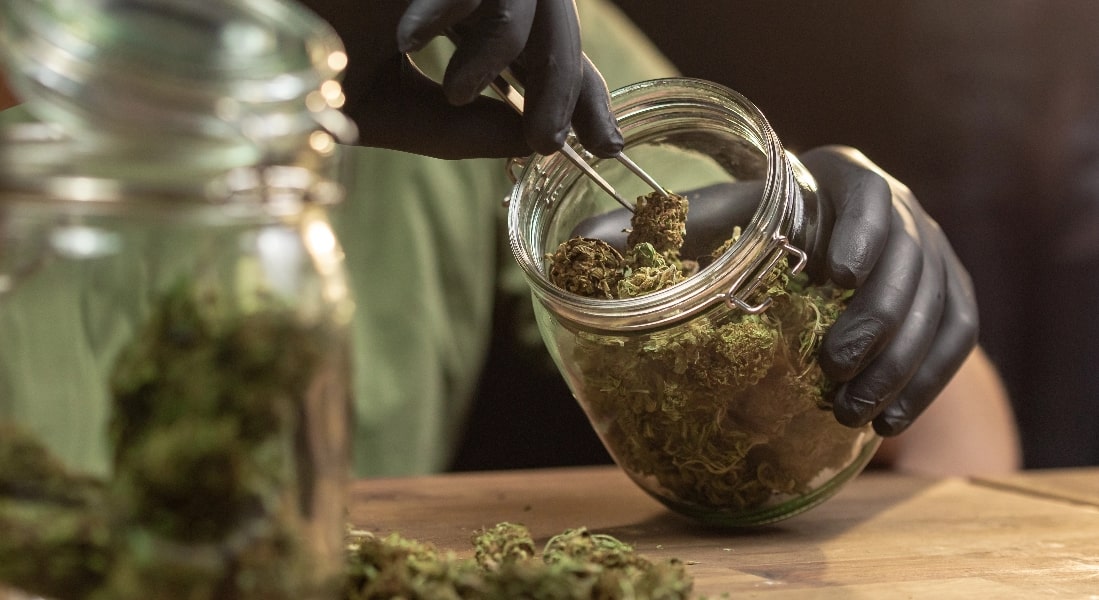
What Does the FDA Say About Delta 8-THC?
The Food and Drug Administration (FDA) is concerned about the sudden growth of the delta 8-THC industry and urges consumers to approach the cannabinoid with caution. On its official website, the FDA has outlined five areas of concern.
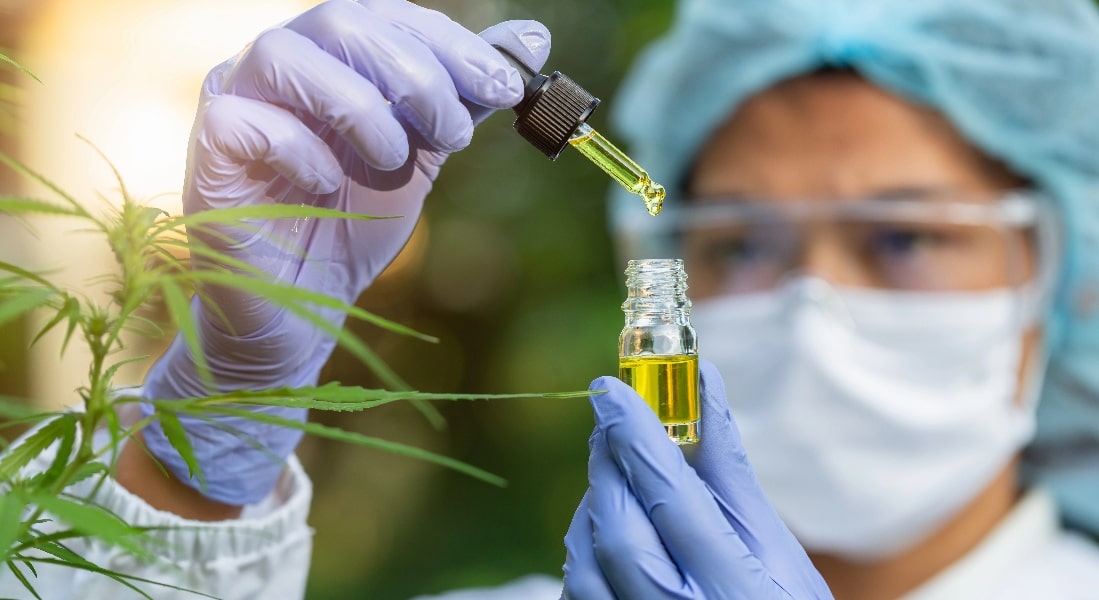
What Are the Different Types of Delta 8 THC Products?
Even though the cannabinoid has only been available for a relatively short time, the growth of the delta 8-THC industry is staggering. It is possible to purchase a wide variety of D8 products and avail of one of the following consumption methods.
- Edibles: Delta 8 THC edibles are among the most in-demand products. They are easy to use, taste great, and ensure users know precisely how much of the cannabinoid they are using per serving. Delta 8-gummies are by far the most popular edible.
- Sublingual Usage: Like CBD, it is possible to consume D8 sublingually by placing a few drops beneath the tongue. With this consumption method, the cannabinoid bypasses the digestive tract and is delivered directly through blood vessels in your mouth. Popular sublingual products include delta 8 tinctures and oils.
- Vaping: There is also a growing trend toward the use of vaping to consume D8. It offers rapid effects and a higher bioavailability rate than other consumption methods. You can purchase delta 8 carts and disposable vapes.
- Smoking: For years, smoking has been the most popular way to consume marijuana. You may be able to find CBD flower enriched with delta 8-concentrate, but such products are rare.
- Dabbing: The process of dabbing involves heating delta 8 concentrate on a dab rig. By doing so, you turn the substance into a vapor you inhale.

Where Can I Buy Delta 8 THC?
Until a few years ago, it was basically impossible to purchase delta 8 THC. However, you can buy it these days from gas stations, convenience stores, supplement companies, CBD shops, and many more locations. Unfortunately, there is grave concern over the quality of such products, let alone their efficacy.
It is best to buy D8 products from reputable brands with stellar reputations. You’ll find that many well-known CBD sellers have branched out and now include delta 8 amongst their stables of products. The top-rated brands known for selling high-quality delta 8 THC include:
- Just Delta
- Binoid
- PureKana
- Premium Jane
- Moonwlkr
- Mystic Labs
- Area 52
What Is the Legal Status of Delta 8 THC?
Confusion has reigned regarding the legality of delta 8 THC ever since it arrived on the market. It was widely assumed that it was considered a federally illegal substance like marijuana since it causes intoxication.
However, a ruling by the Ninth Circuit Court of Appeals in May 2022 changed the face of the industry. According to the Court, delta 8 THC is federally legal under the definition of the 2018 Farm Bill, which legalized hemp and all derivatives, etc., with a maximum THC content of 0.3% by dry weight. In essence, D8 is federally legal if it comes from industrial hemp and contains no more than 0.3% delta 9 THC.
Yet, it is crucial to note that the above ruling only relates to delta 8’s federal status. American states are free to prohibit or restrict sales as they see fit.
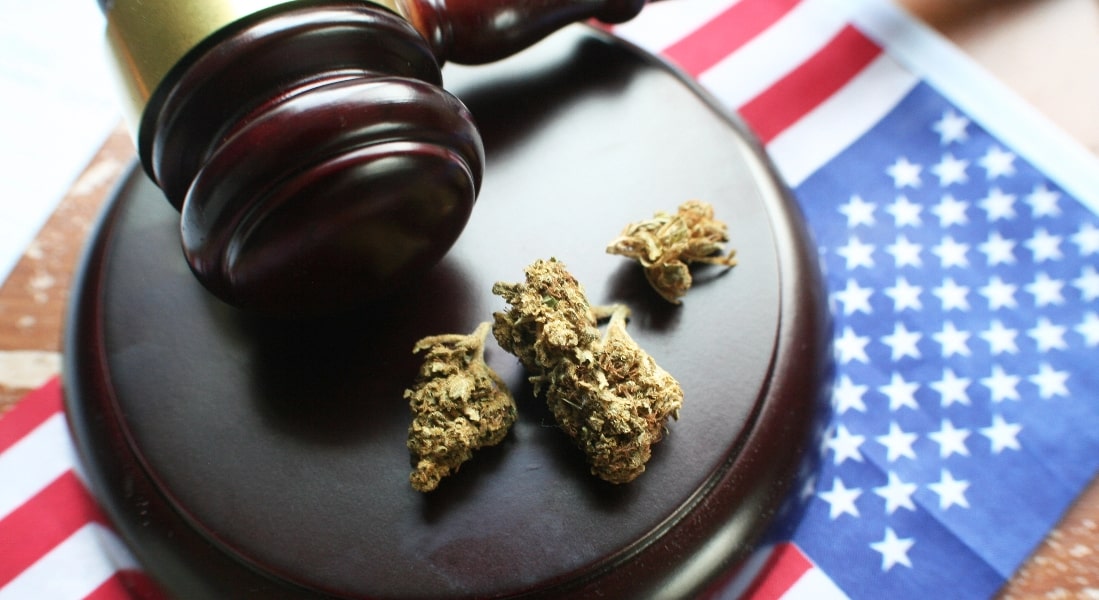
Delta 8 THC’s Legality in Selected States
In several states, lawmakers have moved to ban or regulate the manufacture and sale of delta 8 products due to safety concerns. Here is a quick overview of D8 laws in a few states:
- New York: An announcement from the NY Cannabis Control Board (CCB) stated that the sale, production, and manufacture of delta 8 THC products is illegal in New York. The rules surrounding the possession and usage of the cannabinoid are unclear.
- Colorado: Even though recreational marijuana is legal in Colorado, delta 8 is not.
- Ohio: At present, delta 8 is legal in Ohio, and you can buy it at one of many online and retail stores. However, the state has moved to regulate D8 in MMJ products.
- Tennessee: Even though Tennessee doesn’t have a medical marijuana program, it is currently legal to buy, use, possess, sell, produce, and distribute delta 8 in the state.
- South Carolina: The legal status of delta 8 in South Carolina is very unclear. Technically, state law doesn’t explicitly outlaw the cannabinoid. However, in October 2021, the state’s Attorney General’s Office said that the Hemp Farming Act doesn’t cover D8, making the substance illegal. The above is the AG’s interpretation and not law, but prosecutors will rely on it if you’re arrested for delta 8 possession.
- Indiana: You can legally buy delta 8 in Indiana as the state has not created laws to ban it.
- Alabama: There are currently no restrictions on buying, selling, or using delta 8 in Alabama.
- North Carolina: Delta 8 products are legal in North Carolina as long as they follow the rules laid out in the 2018 Farm Bill.
What Are the Rules in other States?
The legal status of delta 8 in American states is an ever-changing landscape. Apart from New York and Colorado, the cannabinoid is illegal in the following states:
- Alaska
- Arizona
- Delaware
- Idaho
- Iowa
- Montana
- Nevada
- North Dakota
- Oregon
- Rhode Island
- Utah
- Vermont
- Washington
Several other states have severely restricted the sale and use of delta 8. In July 2022, Minnesota Governor Tim Walz signed a law allowing adults aged 21+ to possess and consume hemp-based edibles and drinks with a maximum of 5mg of combined THC per serving. The new law means that products with high delta 8 levels, such as vape cartridges, are no longer available.
It seems likely that other states will either ban, regulate, or restrict the sale and use of delta 8 products.
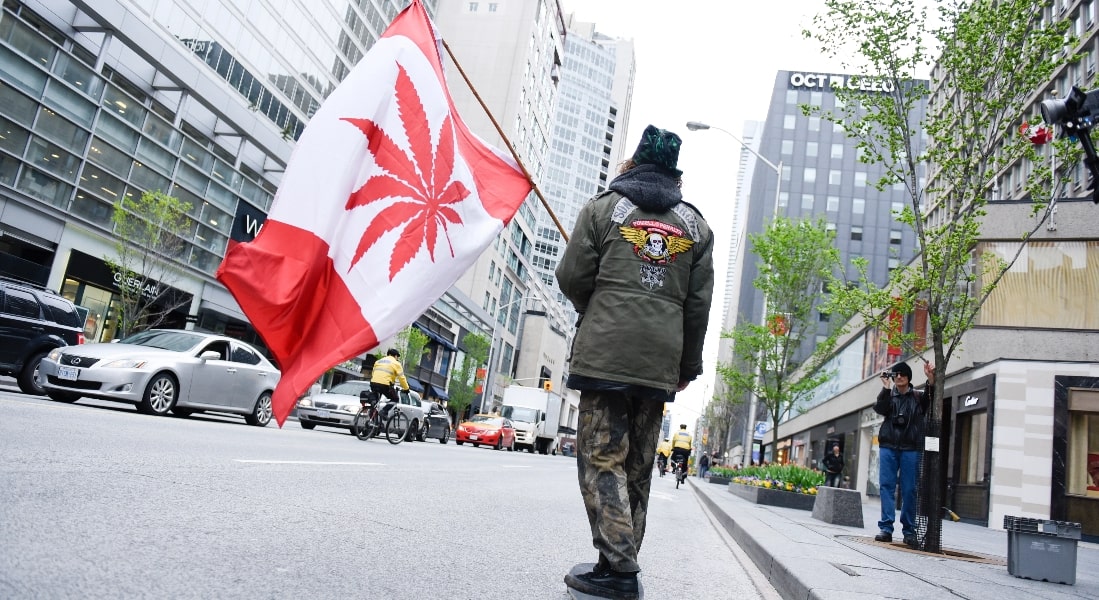
Where Is Delta 8 Legal Internationally?
The rules surrounding delta 8 are little clearer in many countries worldwide. However, it seems that the substance is illegal in the United Kingdom. Sellers are trying to suggest it is a legal gray area. However, it seems probable that the Misuse of Drugs Act and Psychoactive Substances Act mean that delta 8 in the UK is prohibited.
The legality of delta 8 THC in other nations mainly depends on their marijuana laws. Most other countries don’t follow America’s lead in differentiating hemp from marijuana. Therefore, it rarely matters whether a D8 product comes from hemp because it will only be legal in nations that have legalized recreational marijuana. To date, the following countries broadly fall into that category:
- Canada
- Uruguay
- South Africa
- Thailand
- Mexico
- Georgia
- Malta
However, it doesn’t necessarily mean you can buy weed freely in these countries. In Georgia, the European nation, for instance, marijuana is legal for possession and consumption, but the sale and cultivation of the substance remain illegal!
It also isn’t necessarily the case where a country with legal marijuana will permit delta 8. After all, the substance is illegal in Colorado and Washington, the first two states to legalize adult-use marijuana.
As delta 8 is hemp-derived, it is classified as a novel food rather than a narcotic in the European Union (EU). Therefore, D8 products are technically legal throughout the EU, subject to European Commission approval. However, good luck finding a supplier that sells it legally or ships it to your country from overseas!
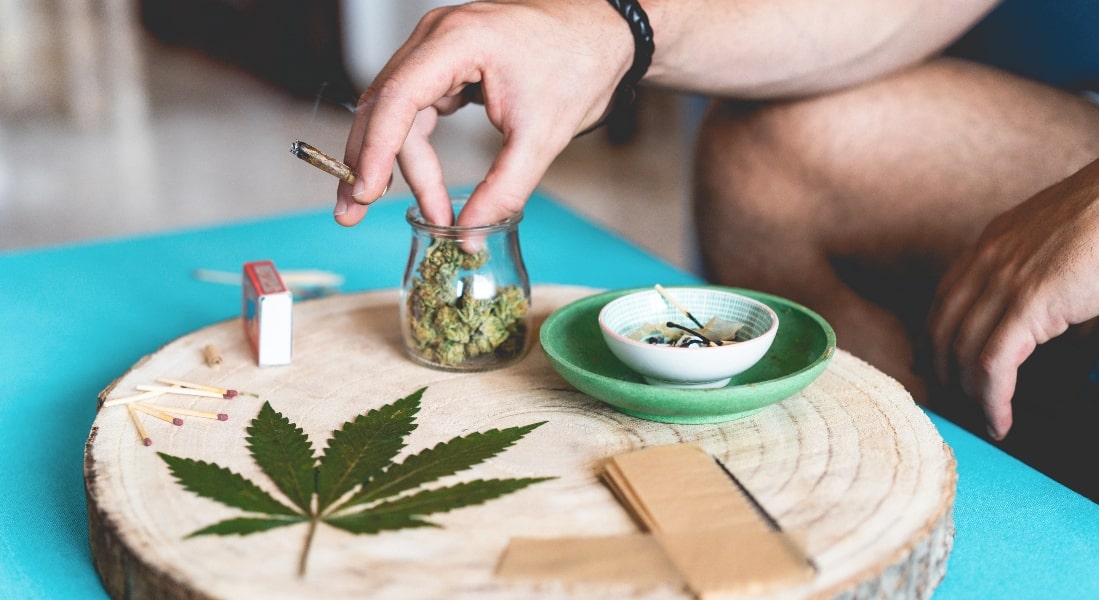
Delta 8 THC Effects
First and foremost, it is important to note that you should experience an intoxicating high after using delta 8 THC. It is less potent than delta 9, but the effects are noticeable.
As far as how you’ll feel, it depends entirely on the user. However, typically, you can expect a light, energizing high that may help you remain in control. Most users claim that D8 helps them feel relaxed, uplifted, and less anxious than when they consume marijuana. Ultimately, delta 8 offers a pleasant experience when used sensibly.
The duration of the effects varies according to the factors such as metabolism, body weight, and consumption method. Edibles, such as delta 8 gummies, have an onset time of up to 90 minutes, but the effects could last five hours. In contrast, vaped D8’s onset time is a few minutes, but the high seldom lasts for over 2.5 hours.
Delta 8 THC Benefits
It is illegal for delta 8 sellers to make health claims. Little research has been conducted on the cannabinoid’s effects on humans, so there is minimal evidence for any claims. The suggestion is that delta 8 could have similar benefits to the delta 9 found in marijuana due to the similarities in their chemical structures. Therefore, it is used to help with conditions such as:
- Nausea
- Anxiety
- Pain relief
- Insomnia
As it provides a lower level of intoxication than D9, it could prove useful for people with a low THC tolerance. Nonetheless, we must wait for comprehensive research into the benefits of delta 8 before claiming it can do X, Y, or Z.

Will Delta 8 THC Cause You to Fail a Drug Test?
So, does delta 8 THC appear in a drug test? The likely answer is “yes.” If you submit to a drug screening such as a urinalysis, it searches for the presence of THC-COOH metabolites. However, commonly used drug tests can’t differentiate between delta 8 and delta 9. Both forms of THC will break down in the body and produce the metabolites that drug screenings can pick up.
Consequently, if you use delta 8 THC regularly and take a drug test, there’s a strong likelihood that you’ll fail. If your employer conducts tests for marijuana use, it is a bad idea to use delta 8 in any form.
Moreover, evidence of your D8 use could remain in your system for longer than you realize. The effects may dissipate within a few hours, but the cannabinoid stays in your system for several days. Once you consume delta 8 THC, the body breaks it down. The cannabinoid travels to the bloodstream and gets stored in organs and fat. Next, your liver processes the D8 and breaks it into the metabolites that drug tests pick up.
Cannabinoids bind to fat, so it takes far longer to remove their traces than with drugs like alcohol. While up to 90% of THC is removed from the system within five days, traces will remain for up to 10 days. However, there’s a suggestion that delta 8 is detectable for up to seven weeks after your last use! The following factors also impact how long delta 8 remains in your system:
- Dosage
- Potency
- Frequency of use
- Consumption method (traces of edibles remain longer than vaped delta 8)
- Age
- Weight
- Metabolism
- Genetics

Delta 8 Dosage, Side Effects & Risks
Information on dosing is only somewhat relevant if you’ve used marijuana before and have an idea of your THC tolerance. As delta 8 is regarded as having half the potency of delta 9, you can get an idea of your starting dose by taking previous marijuana use into account. For example, if a 5mg delta 9 gummy has a noticeable effect, a delta 8 gummy with 10mg should prove sufficient.
You can expect delta 8’s side effects to be broadly similar to what you might experience with delta 9, although there’s a lower risk of anxiety or paranoia. Likely adverse effects include the following:
- Dry mouth
- Red eyes
- Coordination problems
- Reduced reaction times
- Memory loss
- Rapid heart rate
A bigger issue with delta 8 is the poor standard of regulation. It is created in a laboratory, so there are various risks to contend with. You should only buy delta 8 products from reputable brands that manufacture them in clean and safe environments. Furthermore, all products should come with updated third-party lab reports from reputable laboratories.
Yet, we must acknowledge that there isn’t anywhere near enough data on the safety profile of delta 8 to suggest it is extremely safe to use.

Delta 8 vs. Delta 9, Delta 10, and HHC
So, how does delta 8 compare to delta 9, delta 10, and HHC? Let’s find out!
| Delta 8 | Delta 9 | Delta 10 | HHC | |
|---|---|---|---|---|
| How Is It Made? | Delta 8 is found in minuscule quantities in the Cannabis sativa L. plant. Therefore, manufacturers use isomerization to turn CBD isolate extract into delta 8. | Delta 9 is found in abundance in the marijuana plant. It can be sold in its original form and smoked, vaped, or added to edibles. Manufacturers can also extract it from the marijuana plant via various extraction methods, including CO2 extraction and ethanol extraction. | There is little Delta 10 in the Cannabis Sativa L. plant. Therefore, manufacturers convert CBD or D9 into D10 in a lab through isomerization. | Manufacturers tend to use CBD isolate and convert it into HHC via hydrogenation. |
| Effects |
|
|
|
|
| Legality | Federally legal in the United States but banned or restricted in at least 21 states. Internationally, delta 8 is potentially legal in places where recreational marijuana is permitted. | Federally illegal in the United States, but MMJ is legal in dozens of states, while over one-third of states allow recreational weed. Adult-use weed is also legal in Canada and Uruguay, while several countries allow MMJ in certain cases. | The Ninth Circuit Court of Appeals ruling that delta 8 is federally legal applies to delta 10 if derived from hemp and products contain a maximum delta 9 content of 0.3%. However, a growing number of states are moving to prohibit the substance. The rules surrounding D10 are broadly similar to D8 overseas. | The Ninth Circuit ruling suggests that HHC is federally legal in the United States, although individual states have the freedom to ban the cannabinoid. Several states have already prohibited the substance. It is similar internationally, with HHC being difficult to find in most countries. |
| Dosage | As its potency is about half of delta 9 THC, users can theoretically take double the amount of delta 8. Therefore, if you feel an effect from 5mg of D9, you could consume 10mg of D8. | Approximately 3-5mg may lead to a noticeable high among novices. More experienced users can handle anywhere from 10mg to 30mg. | The potency of delta 10 is closer to that of delta 8 than delta 9. Therefore, if 10mg of D8 has an effect, a user may experience a similar level of intoxication with 10mg of D10. | Estimates vary, but HHC is believed to be 70-80% as potent as delta 9 THC. Therefore, if you feel effects from 5mg of D9, 7-8mg of HHC may provide a similar level of intoxication. |
| Possible Benefits |
|
|
|
|
| Possible Side Effects |
|
|
|
|
Delta 8 THC is an intoxicating cannabinoid found in small quantities in the cannabis plant. It is approximately half as potent as delta 9, and users enjoy the mild, relaxing high it provides.
Although researchers have known about delta 8 THC since the 1940s, it has only come to prominence in recent times. Many people view it as an alternative to marijuana, and manufacturers initially took advantage of unclear laws to produce and sell products containing the cannabinoid.
For the time being, delta 8 is federally legal in the United States. However, it is banned in a considerable number of states, with others likely to follow. As there isn’t enough D8 in the cannabis plant to justify paying for extraction, companies create it in a lab using CBD from hemp. There are safety concerns over how the compound is created with unscrupulous brands producing low-quality delta 8 with minimal regulation to prevent them.
Therefore, conducting detailed research into any brand you’re considering purchasing D8 from is wise. You can save time and effort by reading our exclusive, detailed, and unbiased reviews of delta 8 THC sellers.
